Larry ChamleyProfessor and Head of Department of Obstetrics and Gynaecology, University of Auckland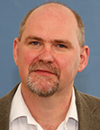 Professor Larry Chamley is Head of the Department of Obstetrics and Gynaecology, at the University of Auckland, New Zealand where he heads a research group studying the biology and immunology of reproduction with a special focus on how placental EVs regulate maternal physiology. He is also the Director of the Hub for Extracellular Vesicles (HEVI) at The University of Auckland and is the Vice President of the American Society for Reproductive immunology. He has more than 200 publications and is the Editor of Trophoblast Research and an Associate Editor of Reproduction. |
Daniel ChiuA. Bruce Montgomery Professor of Chemistry, University of Washington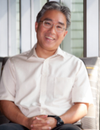 Daniel T. Chiu is currently the A. Bruce Montgomery Professor Chemistry, Endowed Professor of Analytical Chemistry, and Professor of Bioengineering at the University of Washington. He is a member of the University of Washington’s Center for Nanotechnology, Neurobiology and Behavior Program, and the Cancer Consortium of the Fred Hutchinson Cancer Research Center. He has authored more than 180 publications and is the inventor on over 40 issued patents. Dr. Chiu obtained a B.A. in neurobiology and a B.S. in chemistry at the University of California, Berkeley in 1993, and a Ph.D. in chemistry from Stanford University in 1998. |
Brian EliceiriProfessor, UC San Diego Brian Eliceiri, PhD is a Professor in the Department of Surgery at the University of California San Diego. His research is focused on the role of extracellular vesicles (EVs) in regulating wound healing and immune cell crosstalk, with specific interests in the biogenesis of exosomes and how that relates to the cellular source of EVs, the cells that uptake EVs and the engineering of EV payloads to promote tissue repair. Using advanced approaches such as single vesicle flow for the analysis of wound fluid EVs, our lab has identified biologically important protein payloads that promote wound repair in animal models of impaired wound healing. |
Leyla EsfandiariAssociate Professor of Biomedical Engineering, University of Cincinnati Leyla Esfandiari received her B.S. in Electrical Engineering from the California State University of Long Beach (CSULB) and her M.Sc. in Biomedical Engineering from the University of California Irvine (UCI). She completed her doctoral degree in Bioengineering from the University of California Los Angeles (UCLA) in 2014. She is currently an Associate Professor of Biomedical Engineering at the University of Cincinnati. She holds secondary appointments in both Electrical Engineering and Environmental and Public Health Sciences at the College of Medicine. Also, she is a member of the Cincinnati Cancer Center and the Center for Stem Cell and Organoid Medicine (CuSTOM) at the Cincinnati Children's Hospital. Her research is mainly focused on developing miniaturized devices, such as sensors and actuators, that can be applied in liquid biopsy and regenerative medicine. Her research has been supported by the National Institute of Health, the National Science Foundation, and the Department of Defense. Dr. Esfandiari has won many awards, including the National Institute of Health (NIH) Maximizing Investigator Research Award (MIRA) in 2023, the National Science Foundation (NSF) CAREER Award in 2021, and the Engineering and Applied Sciences Distinguished Research Award. |
Jennifer JonesNIH Stadtman Investigator, Head of Transnational Nanobiology, Laboratory of Pathology, Center for Cancer Research, National Cancer Institute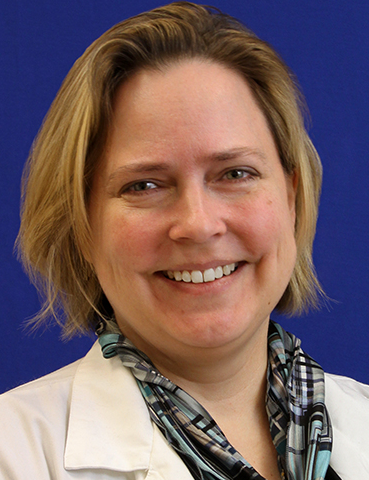 Dr. Jones is NIH Stadtman Investigator, Head of Transnational Nanobiology, Laboratory of Pathology at the Center for Cancer Research, National Cancer Institute, who is developing, refining, and applying advanced high-resolution flow cytometric methods to the characterization of EV subsets. She initiated/cofounded the international ISEV-ISAC-ISTH EV Flow Cytometry Working Group, to support the development of consensus best practices and standardization methods for the field. The ultimate goal of her research is to develop a new class of EV-based biomarkers (and methods for anlyzing those EVs) that will enable adaptve therapeutic strategies, where individual patient treatments are customized based on early responses to treatment. |
Andrea RaymondAssociate Professor, Herbert Wertheim College of Medicine, Florida International University Dr. Raymond is a Research Associate Professor in the Department of Immunology and Nanomedicine at the Herbert Wertheim College of Medicine at Florida International University, Miami, FL. She heads a research group investigating the role of extracellular vesicles(EVs) in the pathology associated with substance use disorders, HIV NeuroAIDS, and HIV-related cancers. Dr. Raymond lab is among the first to demonstrate a potential role for exosomal EVs in HIV-associated neuropathogenesis. Her research group has shown in vitro that HIV-infected cells release EVs containing the HIV Nef protein and has demonstrated ex vivo the presence Nef-containing EVs in the serum of aviremic HIV-infected subjects. However, the functional role of these Nef-containing EVs in HIV neuropathogenesis is still unknown. Dr. Raymond seeks to understand how the content (and function) of brain and immune cell-derived EVs vary upon HIV infection and opiate exposure to identify EV-based biomarkers of HIV neuropathogenesis and opiate use disorder. |
Steve SoperFoundation Distinguished Professor, Director, Center of BioModular Multi-Scale System for Precision Medicine, The University of Kansas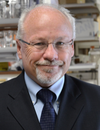 Prof. Soper is currently a Foundation Distinguished Professor in Chemistry and Mechanical Engineering at the University of Kansas, Lawrence. Prof. Soper also holds an appointment at Ulsan National Institute of Science and Technology in Ulsan, South Korea, where he is a World Class University Professor. He is also serving as a Science Advisor for a number of major worldwide companies. Prof. Soper is currently on the Editorial Board for Scientific Reports and Journal of Micro- and Nanosystems. |
Shannon StottAssistant Professor, Massachusetts General Hospital & Harvard Medical School Professor Stott is a Mechanical Engineer that has been working at the interface of technology and medicine. She has an extensive background in microfluidics, optics, and tissue engineering, with a focus on their applications in clinical medicine. As a postdoctoral fellow, she invented the herringbone circulating tumor cell chip (HBCTC-Chip) a device that can successfully capture extremely rare cancer cells circulating in the blood stream cancer patients. Manipulating blood flow for the isolation and separation of biological components has been a hallmark of her work and recent efforts include using nanofluidics to separate extracellular vesicles and nucleic acids from patient samples. The overriding goal of the Stott Laboratory is to use all of these technologies and techniques to improve patient lives through early diagnosis and a greater understanding of how cancer spreads and kills. Dr. Stott has a particular interest in brain tumors and the potential impact of a blood biopsy for adult and pediatric patients. |
Danilo TagleDirector, Office of Special Initiatives, National Center for Advancing Translational Sciences at the NIH (NCATS)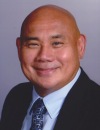 Dan Tagle is Director of the Office of Special Initiatives at NCATS where he many coordinates efforts towards development of disruptive technologies in translational research. He obtained his Ph.D. in Molecular Biology and Genetics from Wayne State University School of Medicine. He was an NIH National Research Service Award postdoctoral fellow in Human Genetics at the University of Michigan. He has served on numerous committees, advisory boards, and editorial boards. He has authored many scientific publications and has garnered numerous awards, including more recently the Roscoe O. Brady Award for Innovation and Accomplishment, and the Henry J. Heimlich Award for Innovative Medicine. |
Shuichi TakayamaProfessor, Georgia Research Alliance Eminent Scholar, and Price Gilbert, Jr. Chair in Regenerative Engineering and Medicine Wallace H. Coulter Department of Biomedical Engineering, Georgia Institute of Technology & Emory University School of Medicine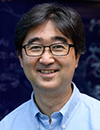 Prof. Shuichi Takayama’s research interests started with bioorganic synthesis at the University of Tokyo and Scripps Research Institute. Subsequently he pursued postdoctoral studies in bioengineered microsystems at Harvard University as a Leukemia and Lymphoma Society Fellow. He spent 17 years at the University of Michigan in the Biomedical Engineering Department and Macromolecular Science and Engineering Program, then moved to the Wallace H. Coulter Department of Biomedical Engineering at the Georgia Institute of Technology and Emory School of Medicine in the summer of 2017. He is an associate editor of Integrative Biology and recipient of the Pioneers of Miniaturization Prize. |
Kendall Van Keuren-JensenProfessor and Deputy Director, Translational Genomics Research Institute Dr. Van Keuren-Jensen is Professor in the Neurogenomics Division at the Translational Genomics Research Institute (TGen) as well as Deputy Director of the Institute. She is also Co-Leader, Center for Noninvasive Diagnostics. Her primary interests are in using biofluid based markers to diagnose and inform researchers and clinicians about central nervous system disorders and diseases. |




